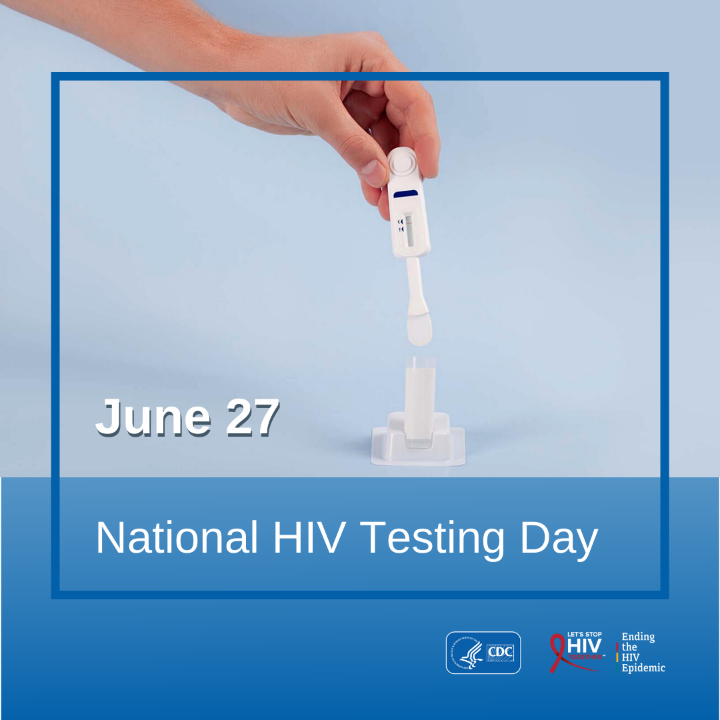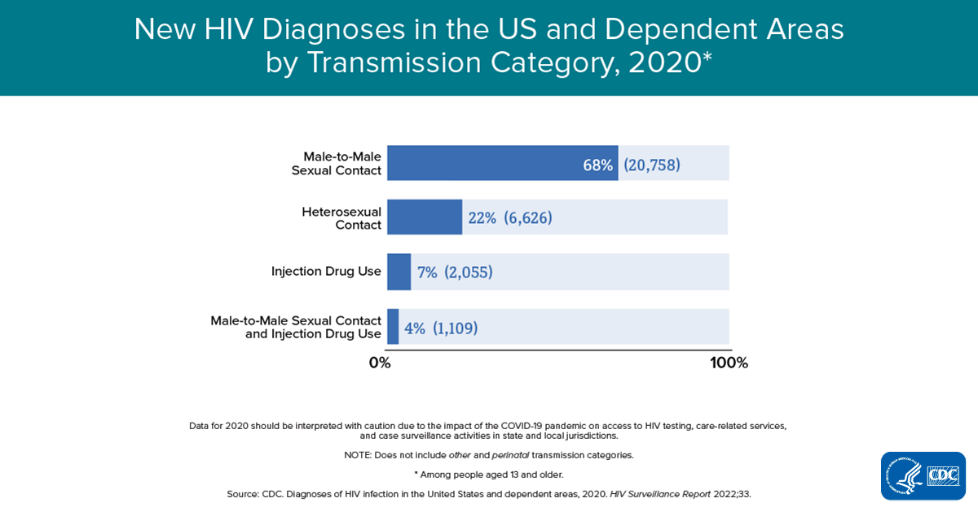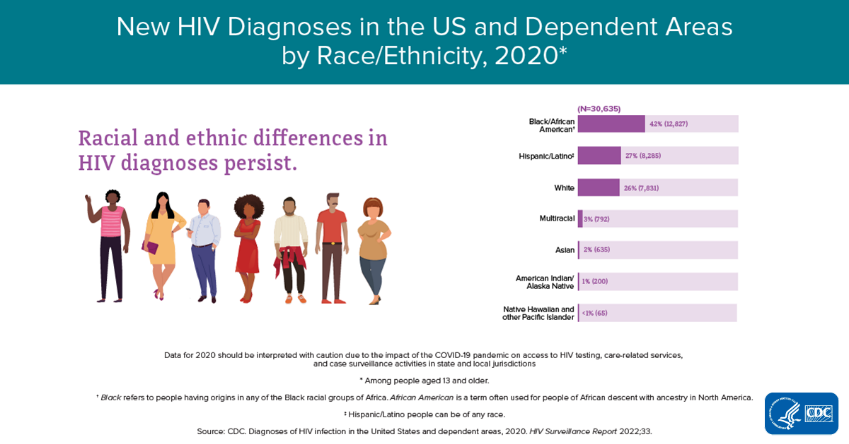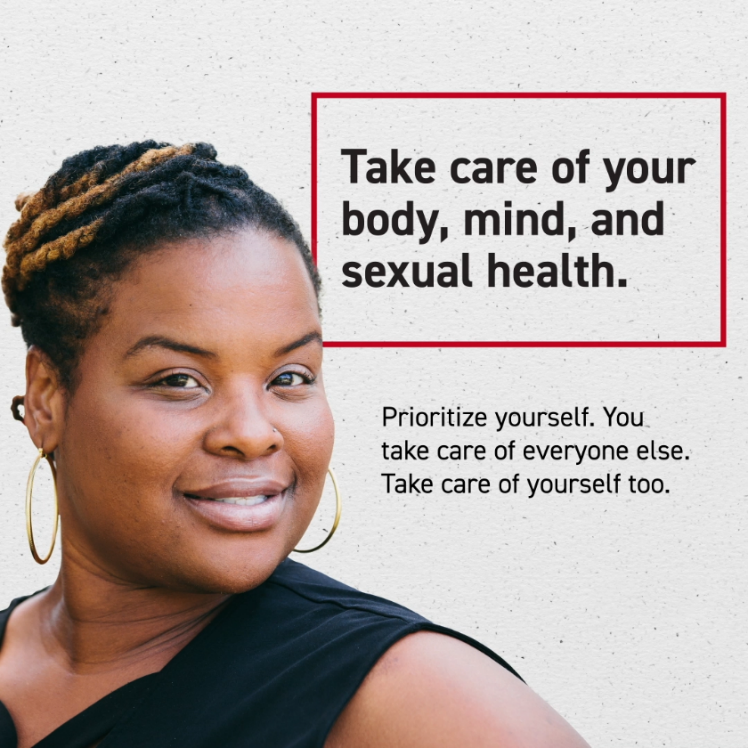
What is HIV?
- HIV (human immunodeficiency virus) is a virus that attacks the body’s immune system. If HIV is not treated, it can lead to AIDS (acquired immunodeficiency syndrome).
- There is currently no effective cure. Once people get HIV, they have it for life.
- But with proper medical care, HIV can be controlled. People with HIV who get effective HIV treatment can live long, healthy lives and protect their partners.
HIV Statistics 2020


HIV Testing

- HIV testing is an act of self-care.
- Encouraging people to get tested and know their HIV status can help them stay healthy.
- Today, there are more free, easy, fast, and confidential HIV testing options available than ever before.
- Testing, including self-testing, is the first step to engaging in HIV prevention or treatment services.
- HIV testing is a critical tool to helping us end the HIV epidemic in the United States.

What types of tests are available, and how do they work?
- There are three types of HIV tests: antibody tests, antigen/antibody tests, and nucleic acid tests (NAT).
- Antibodies are produced by your immune system when you’re exposed to viruses like HIV.
- Antigens are foreign substances that cause your immune system to activate.
- If you have HIV, an antigen called p24 is produced even before antibodies develop.
- HIV tests are typically performed on blood or oral fluid.
- They may also be performed on urine.
Antibody Test
- An antibody test looks for antibodies to HIV in your blood or oral fluid.
- Most rapid tests and the only HIV self-test approved by the U.S. Food and Drug Administration (FDA) are antibody tests.
- In general, antibody tests that use blood from a vein can detect HIV sooner than tests done with blood from a finger stick or with oral fluid.
Antigen/Antibody Test
- An antigen/antibody test looks for both HIV antibodies and antigens.
- Antigen/antibody tests are recommended for testing done in labs and are common in the United States.
- This lab test involves drawing blood from a vein.
- There is also a rapid antigen/antibody test available that is done with blood from a finger stick.
Nucleic Acid Test (NAT)
A NAT looks for the actual virus in the blood.
- With a NAT, the health care provider will draw blood from your vein and send the sample to a lab for testing.
- This test can tell if a person has HIV or how much virus is present in the blood (HIV viral load test).
- A NAT can detect HIV sooner than other types of tests.
- This test should be considered for people who have had a recent exposure or a possible exposure and have early symptoms of HIV and who have tested negative with an antibody or antigen/antibody test.
How long will it take to get my HIV test results?
- It depends on the type of HIV test and where you get tested.
- HIV self-tests provide results within 20 minutes.
- With a rapid antibody test, usually done with blood from a finger stick or with oral fluid, results are ready in 30 minutes or less.
- The rapid antigen/antibody test, done with blood from a finger stick, takes 30 minutes or less.
- It may take several days to receive your test results with a NAT or antigen/antibody lab test.
Can an HIV test detect the virus immediately after exposure?
- No HIV test can detect HIV immediately after infection.
- That’s because of the window period the time between HIV exposure and when a test can detect HIV in your body.
- The window period depends on the type of HIV test.
- A nucleic acid test can usually detect HIV the soonest (about 10 to 33 days after exposure).
- Learn more about the window period for each HIV test.
- If you think you’ve been exposed to HIV in the last 72 hours, talk to a health care provider, an emergency room doctor, or an urgent care provider about post-exposure prophylaxis (PEP) right away.
https://www.cdc.gov/hiv/default.html
Pre-exposure Prophylaxis PrEP

- PrEP (pre-exposure prophylaxis) is medicine that reduces your chances of getting HIV from sex or injection drug use. When taken as prescribed, PrEP is highly effective for preventing HIV.
Is PrEP safe?
- PrEP is safe, but some people experience side effects like diarrhea, nausea, headache, fatigue, and stomach pain. These side effects usually go away over time.
Tell your health care provider about any side effects that are severe or do not go away.
How effective is PrEP?
- PrEP is highly effective for preventing HIV.
- PrEP reduces the risk of getting HIV from sex by about 99% when taken as prescribed.
- Although there is less information about how effective PrEP pills are among people who inject drugs, we know that PrEP pills reduce the risk of getting HIV by at least 74% when taken as prescribed.
- Currently, PrEP shots are not recommended for people who inject drugs.
- PrEP is less effective when not taken as prescribed.
How long does PrEP take to work?
- For receptive anal sex (bottoming), PrEP pills reach maximum protection from HIV at about 7 days of daily use.
- For receptive vaginal sex and injection drug use, PrEP pills reach maximum protection at about 21 days of daily use.
- No data are available for PrEP pill effectiveness for insertive anal sex (topping) or insertive vaginal sex.
- We don’t know how long it takes for PrEP shots to reach maximum protection during sex.
Learn more about the PrEP effectiveness estimate.
Resource Library
CDC offers many resources to help you learn about HIV. CDC fact sheets discuss how HIV affects specific subpopulations and provide information about topics such as risk behaviors and prevention tools. Reports and slides share the latest data and research. Downloadable infographics and awareness day materials can help you better understand HIV’s impact and share that knowledge with others. Letters to colleagues inform partners about new developments in HIV prevention and awareness day activities.
https://www.cdc.gov/hiv/library/index.html